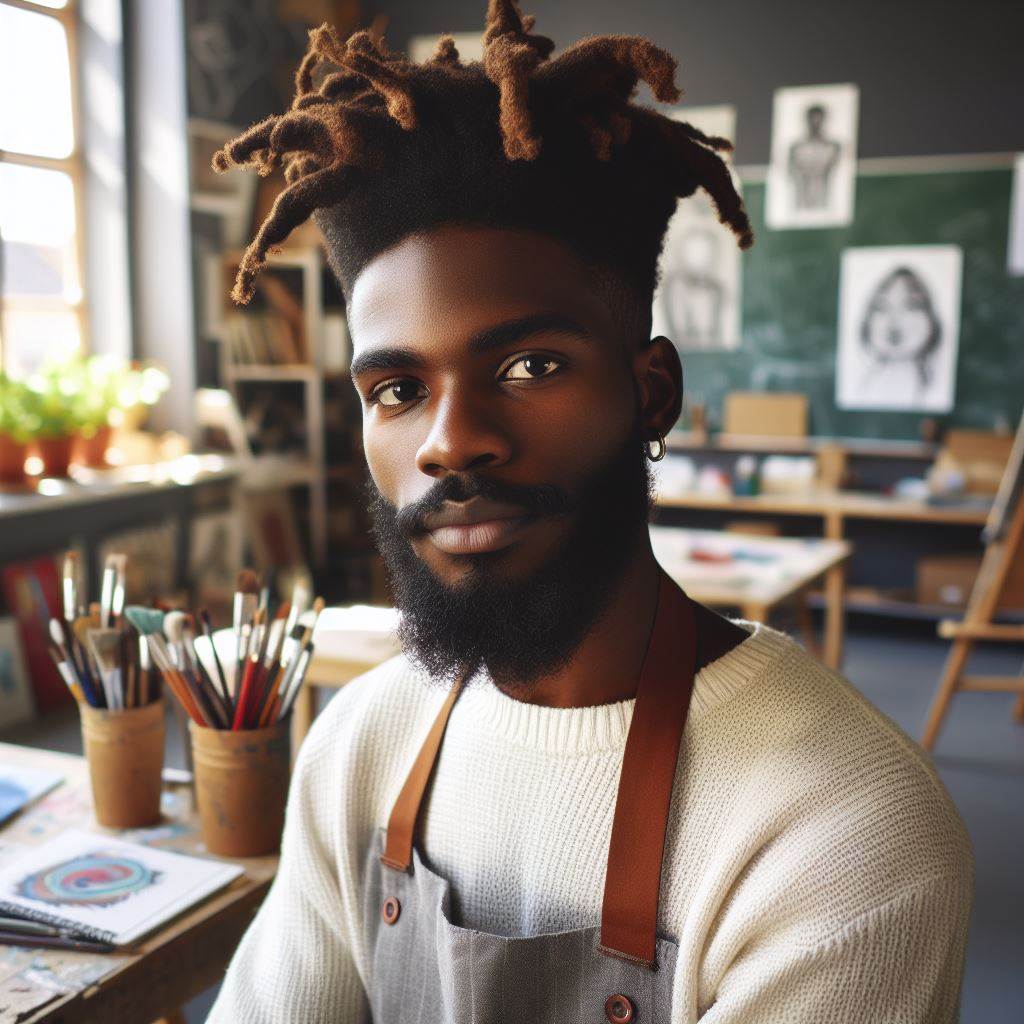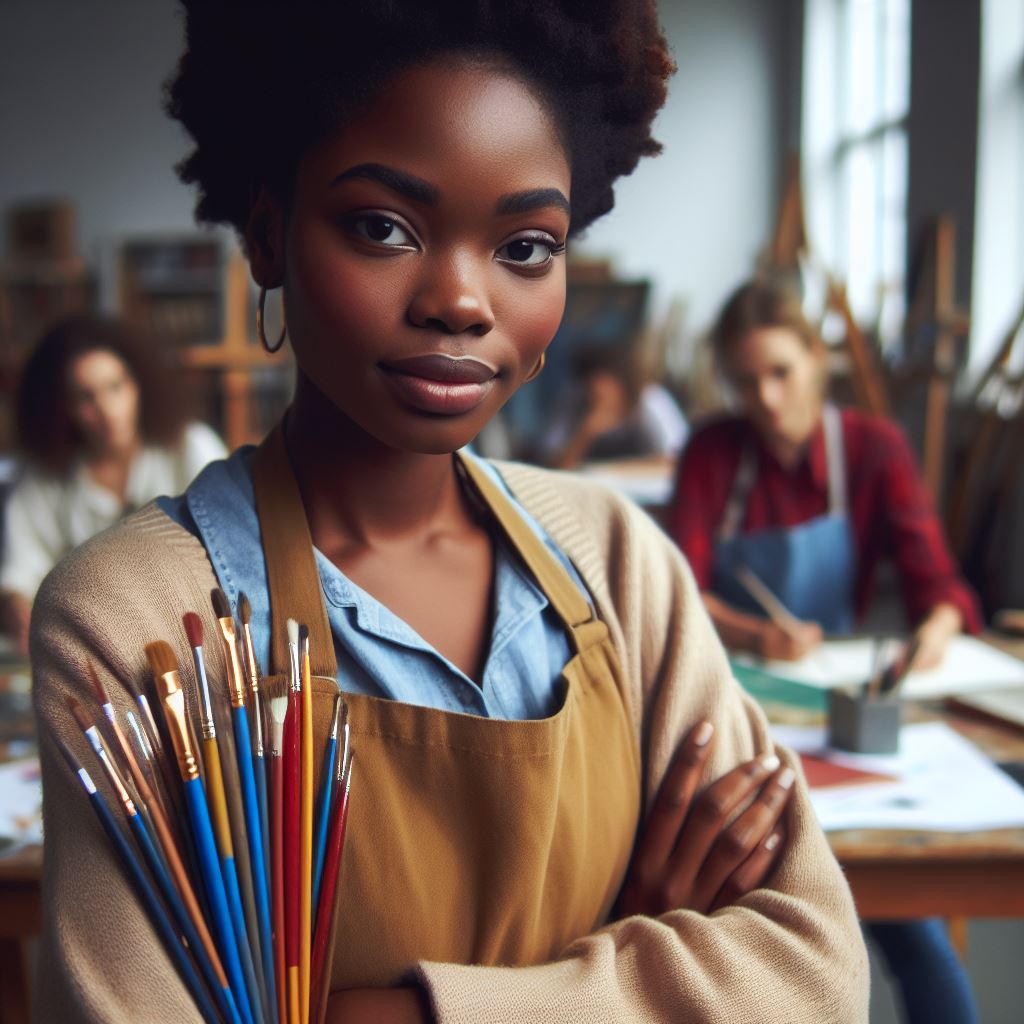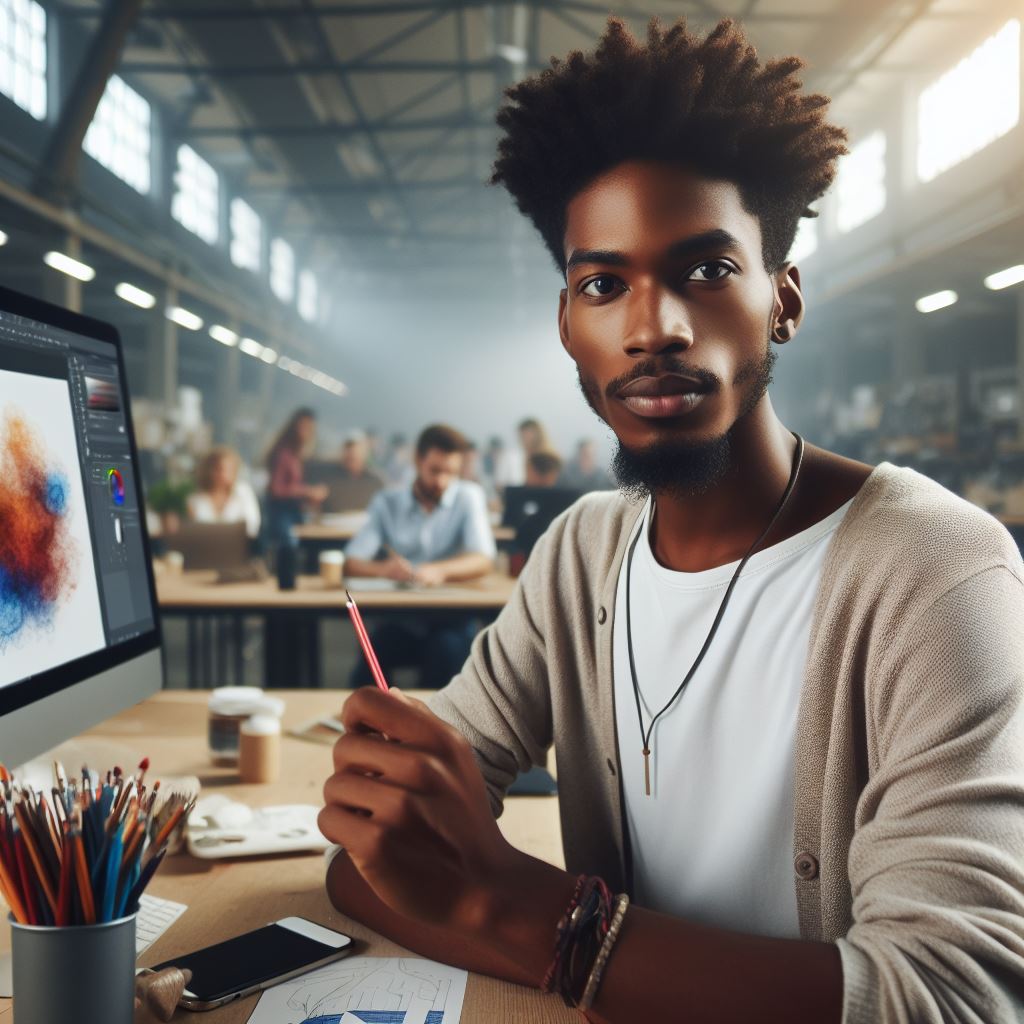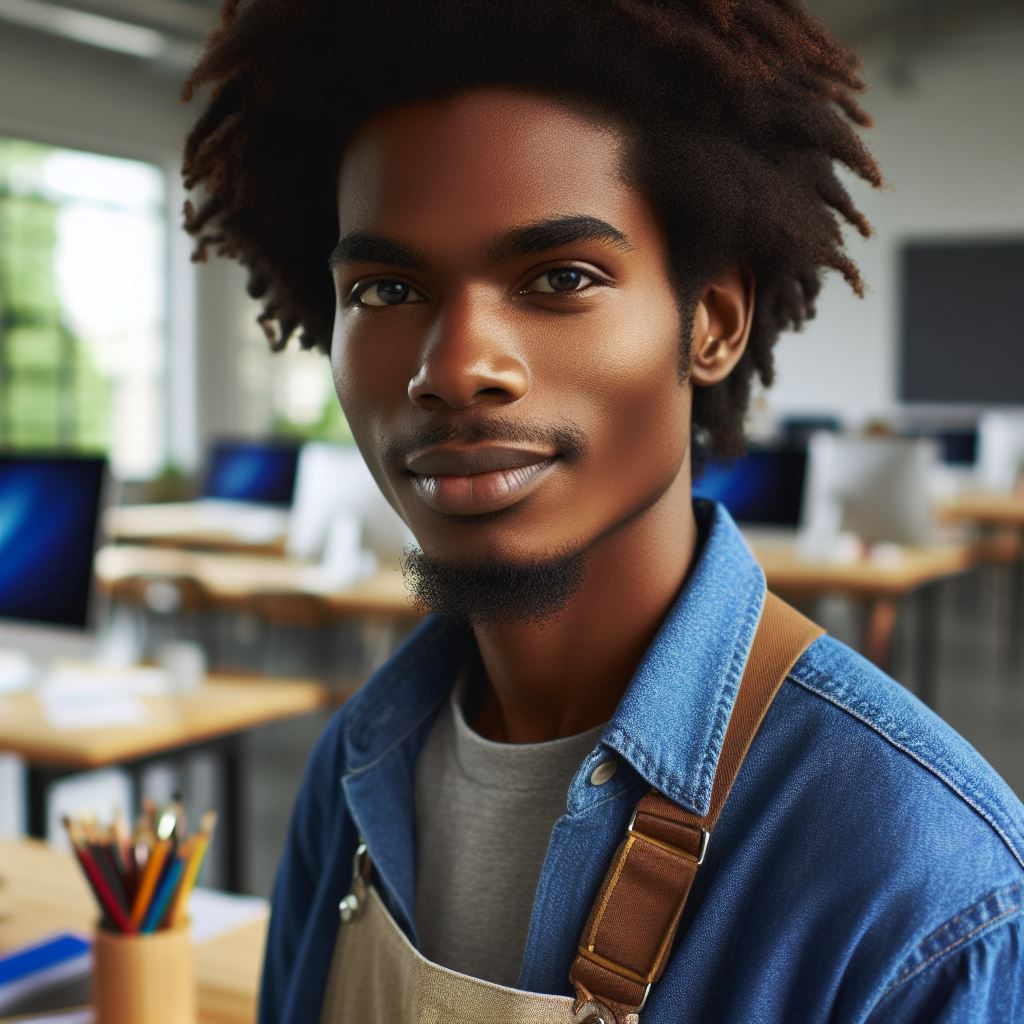Introduction
Exploring Nigerian Art Galleries and Museums opens portals to Nigeria’s vibrant artistic heritage.
Each gallery pulsates with cultural narratives, reflecting Nigeria’s kaleidoscopic diversity.
These spaces serve as custodians of Nigeria’s artistic legacy, showcasing masterpieces that traverse epochs and genres.
From traditional sculptures to contemporary paintings, Nigerian art encapsulates a rich tapestry of traditions, beliefs, and experiences.
The significance of Nigerian art transcends aesthetics, serving as a conduit for storytelling, social commentary, and cultural preservation.
Nigerian galleries and museums, nurturing appreciation across generations, offer a glimpse into the nation’s soul, fostering understanding.
Overview of Nigerian Art Galleries
Overview of the various art galleries across Nigeria
Nigeria is home to a wide range of art galleries spread across the country. These galleries showcase a diverse collection of artworks from various artists.
The art displayed in these galleries includes traditional, contemporary, and mixed media pieces.
Visitors can explore a rich cultural heritage through the artworks on display.
Types of Art Displayed
- Traditional Art: Nigerian art galleries often feature traditional artworks such as masks, sculptures, and paintings.
- Contemporary Art: Many galleries exhibit modern and contemporary artworks from Nigerian and international artists.
- Mixed Media: Some galleries showcase a combination of different art forms, blending traditional and contemporary styles.
These diverse art forms offer visitors a comprehensive view of Nigerian artistic expression.
Famous Art Galleries in Nigeria
- Nike Art Gallery: Located in Lagos, this gallery is known for promoting traditional Nigerian art.
- National Gallery of Art: Situated in Abuja, this gallery showcases contemporary Nigerian artworks.
- Thought Pyramid Art Centre: This art space in Abuja features a mix of traditional and contemporary art.
- Rele Gallery: Based in Lagos, this gallery focuses on supporting emerging contemporary Nigerian artists.
- Omenka Gallery: Also in Lagos, this gallery is renowned for its exhibitions of modern and contemporary art.
In fact, Nigerian art galleries offer a glimpse into the rich cultural heritage and artistic talent present in the country.
As visitors explore these galleries, they are immersed in a world of creativity and expression that truly reflects the diversity and vibrancy of Nigerian art.
Read: How to Start a Career in Nigerian Visual Arts
Importance of Museums in Preserving Nigerian History
Museums play a crucial role in preserving Nigeria’s cultural heritage by acting as repositories of artifacts, documents, and other historical items.
They serve as guardians of the nation’s past, safeguarding valuable pieces of history that might otherwise be lost or destroyed.
Furthermore, museums provide a platform for educating the public about Nigeria’s rich history and traditions, helping to foster a sense of national identity and pride.
Role of Museums
- Preserving artifacts: Museums collect, preserve, and display a wide range of artifacts that are significant to Nigeria’s history and culture.
- Documenting history: Museums house archives, documents, and photographs that offer insights into Nigeria’s past, allowing researchers and visitors to learn about the country’s history.
- Curating exhibitions: Museums curate exhibitions that showcase different aspects of Nigeria’s history, providing a comprehensive view of the nation’s cultural heritage.
Importance of Museums
- Educational tool: Museums serve as educational institutions, offering curated displays and programs that inform the public about Nigeria’s history and traditions.
- Promoting cultural appreciation: Museums help promote cultural appreciation by showcasing diverse artifacts and artworks that represent Nigeria’s artistic and cultural achievements.
- Preserving intangible heritage: Museums play a vital role in preserving intangible heritage, such as oral traditions, rituals, and customs that are integral to Nigeria’s identity.
Specific Museums in Nigeria
Several museums in Nigeria are dedicated to preserving the country’s history and cultural heritage:
- National Museum Lagos: This museum showcases artifacts and artworks that reflect Nigeria’s diverse cultural heritage, including traditional crafts, sculptures, and textiles.
- National Museum Ile-Ife: Located in the ancient city of Ile-Ife, this museum focuses on the history and artifacts of the Yoruba people, showcasing important cultural items and historical relics.
- National Museum Benin City: This museum houses a collection of artifacts related to the Benin Kingdom, including bronze sculptures, ivory carvings, and royal regalia.
Nigeria’s museums preserve history, culture, shaping national identity, vital for education and heritage.
Read: Prominent Nigerian Artists You Should Know
Exploring Nigerian Art Collections
When exploring Nigerian galleries and museums, one can find a treasure trove of iconic art pieces that showcase the rich cultural heritage of the country.
Iconic Art Pieces
One of the most iconic art pieces in Nigerian galleries is the ‘Dance of the Masquerade’ by Ben Enwonwu.
This painting captures the essence of traditional Nigerian masquerade performances, with vibrant colors and intricate details.
Another famous art piece is ‘Tutu’ by Ben Enwonwu, a portrait of an Igbo princess that has become a symbol of Nigerian art.
Other notable works include ‘Sango’ by Twins Seven Seven, which depicts the Yoruba god of thunder, and ‘Mother and Child’ by Yusuf Grillo.
Meaning and Cultural Significance
These art pieces hold deep cultural significance for Nigerians, as they reflect the country’s diverse ethnic groups and rich traditions.
The ‘Dance of the Masquerade’ represents the spiritual connection between humans and ancestral spirits in Nigerian culture.
‘Tutu’ symbolizes the beauty and strength of Nigerian women, while ‘Sango’ celebrates the Yoruba pantheon and its importance in traditional religion.
‘Mother and Child’ reflects the importance of family and the nurturing role of mothers in Nigerian society.
Artists and Their Contributions
Ben Enwonwu, known as the father of Nigerian modernism, was a pioneering artist who brought international acclaim to Nigerian art.
Twins Seven Seven was a prominent figure in the Osogbo School of art and played a key role in promoting Yoruba culture through his work.
Yusuf Grillo is celebrated for his unique style that combines traditional Yoruba art forms with modern techniques, creating visually stunning pieces.
Nigerian art galleries and museums offer insights into rich cultural heritage.
Talented artists like Ben Enwonwu, Twins Seven Seven, and Yusuf Grillo contributed significantly.
Read: Top Nigerian Art Schools for Aspiring Artists

Learn More: Nigerian Musical Instruments and Their History
Delve into the Subject: Importance of Location Scouting in Nigerian Films
Explore Further: How to Start an Art Collection in Nigeria
Art Exhibitions and Events in Nigeria
Upcoming art exhibitions and events in Nigeria
As the Nigerian art scene continues to flourish, there are several upcoming art exhibitions and events that art enthusiasts should not miss.
Nigerian artists across various mediums exhibit diverse talent and creativity in painting, sculpture, photography, etc.
One of the most anticipated events is the Lagos Art Auction, which features works from both emerging and established artists.
This auction platform boosts artists’ recognition and broadens their audience, while enabling collectors to acquire unique pieces.
Transform Your Career with Expert Guidance
Get personalized mentorship consulting that’s tailored to your unique path. Our expert advice is actionable and exclusive.
Get StartedArtists from across Nigeria gather to exhibit their latest works at the Annual National Gallery of Art Exhibition.
This exhibition offers a glimpse into the rich cultural heritage and artistic expressions of the country, celebrating diversity and creativity.
Impact of these events on the Nigerian art scene
Art exhibitions and events shape Nigeria’s art scene, fostering creativity, innovation, and collaboration among artists.
The platform enables artists to showcase, interact, and gain feedback and exposure from fellow artists and enthusiasts.
These events promote Nigerian art locally and globally, fostering growth and development in the art market.
Nigerian artists and their works gain elevated status, drawing global collectors, curators, and art lovers.
Opportunities for Artists to Showcase Their Work
Artists showcasing in Nigeria seize chances to display, connect, and broaden networks in art communities.
These events serve as a springboard for emerging artists to launch their careers and gain recognition in the art world.
Artists build credibility, establish identities, and secure opportunities by exhibiting in prestigious galleries and museums.
Artists utilize these events to express diverse perspectives, narratives, and artistic visions actively. They engage a varied audience.
Encouragement to attend these events and support Nigerian artists
Support Nigerian artists by attending events, purchasing artworks, and engaging with the local art community.
Contribute to Nigerian art scene growth, empowering artists for innovation by actively participating in events.
Immerse yourself in Nigeria’s vibrant art scene, exploring rich traditions, contemporary expressions, and emerging talent.
Nigerian artists showcase diversity, creativity, and resilience, contributing significantly to the global art scene.
Read: How to Build a Successful Beauty Therapy Portfolio
Uncover the Details: Top Universities for Arabic Studies in Nigeria
Explore Further: African and Asian Studies: History and Evolution
Challenges Facing Nigerian Art Galleries and Museums
Challenges faced by Nigerian art galleries and museums
- Limited Funding: Limited government funding often hinders the development and maintenance of art galleries and museums.
- Preservation of Art Pieces: Preserving delicate art pieces requires specialized knowledge, equipment, and resources that may not always be readily available.
- Attracting Visitors: Many Nigerian art galleries and museums struggle to attract a steady flow of local and international visitors.
Potential Solutions to These Challenges
- Diversifying Funding Sources: Art galleries and museums can seek funding from private donors, corporate sponsors, and international organizations to supplement government funding.
- Collaboration with Institutions: By partnering with universities, cultural institutions, and international organizations, Nigerian art galleries and museums can access resources and expertise for preserving art pieces.
- Digital Engagement: Utilizing digital platforms to showcase collections, offer virtual tours, and engage with audiences can attract a wider and more diverse range of visitors.
Ways the Public Can Support these Institutions
- Visit and Patronize: By visiting art galleries and museums, individuals can show support and contribute to their sustainability through entrance fees and purchases.
- Spread Awareness: Sharing information about ongoing exhibitions, events, and initiatives on social media and with friends can help raise awareness and attract more visitors.
- Volunteer or Donate: Volunteering time, skills, or resources can greatly benefit art galleries and museums, while donations can provide much-needed funding for projects and conservation efforts.
In a nutshell, Nigerian art galleries and museums face various challenges, from limited funding to difficulties in preserving art pieces and attracting visitors.
By implementing potential solutions and garnering public support, these institutions can thrive, showcasing Nigeria’s cultural heritage.
Explore Further: Career Paths with an English Language Degree in Nigeria
Learn More: Online Courses for Islamic Studies in Nigeria
Delve into the Subject: Career Paths for Anthropology Graduates in Nigeria
Conclusion
Nigerian art galleries and museums offer a glimpse into the rich cultural heritage of the country.
Visiting these institutions allows one to experience the diversity and creativity of Nigerian artists.
Supporting Nigerian artists and art institutions is crucial in preserving the country’s heritage for future generations.
I encourage readers to explore Nigerian art galleries and museums to appreciate the unique artistic expressions of the nation.
By supporting these artists and institutions, we contribute to the preservation and promotion of Nigeria’s art and culture.
Nigerian art galleries and museums are not just spaces for viewing art but also avenues for connecting with the country’s vibrant cultural traditions.
Let’s continue to support Nigerian art and artists to ensure that their voices and stories are heard and celebrated worldwide.




